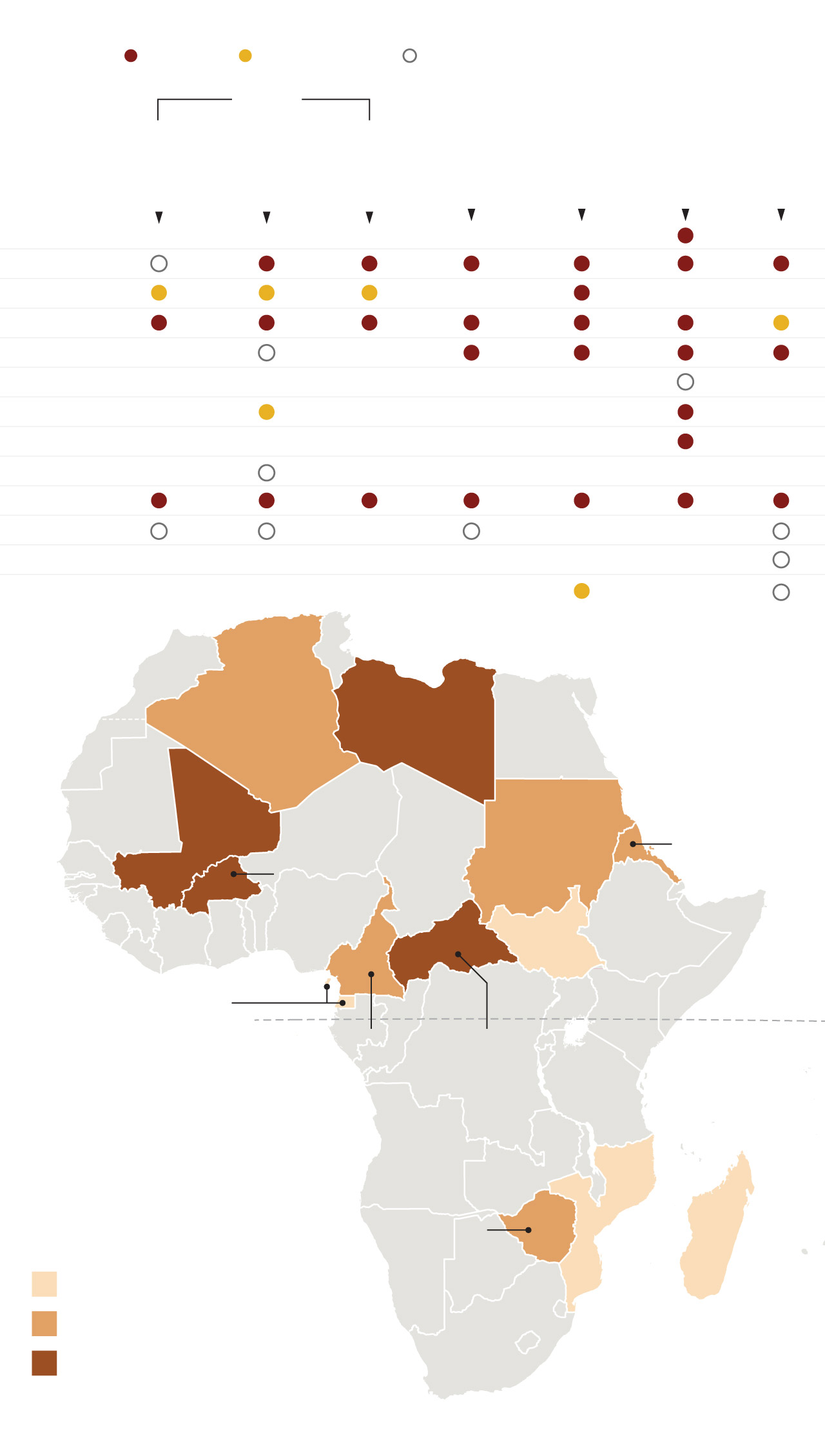Leaked documents show Russia’s surge into Africa as U.S. influence fades
At a time when Wagner leader Yevgeniy Prigozhin has been preoccupied with Kremlin infighting over the paramilitary group’s deepening involvement in the war in Ukraine, U.S. officials depict Wagner’s expanding global footprint as a potential vulnerability.
One document in the trove lists nearly a dozen “kinetic” and other options that could be pursued as part of “coordinated U.S. and allied disruption efforts.” The files propose providing targeting information to help Ukraine forces kill Wagner commanders, and cite other allies’ willingness to take similar lethal measures against Wagner nodes in Africa.
And yet, there is little in the trove to suggest that the CIA, Pentagon or other agencies have caused more than minor setbacks for Wagner over a six-year stretch during which the mercenary group, controlled by Putin ally Prigozhin, gained strategic footholds in at least eight African countries, among 13 nations where Prigozhin has operated in some capacity, according to one document.
The only direct military strike mentioned in the files refers to “a successful unattributed attack in Libya” that “destroyed a Wagner logistics aircraft.” The document provides no further detail about the operation or why that single plane — part of a far larger Wagner fleet — was targeted.
The most significant American attack against Wagner was near Deir al-Zour, Syria, in February 2018, when U.S. airstrikes killed several hundred Wagner fighters who were attacking several dozen Delta Force soldiers, Rangers and Kurdish forces next to a gas plant.
Overall, the trove portrays Wagner as a relatively unconstrained force in Africa, expanding its presence and ambitions on that continent even as the war in Ukraine has become a grinding, if not all-consuming, problem for the Kremlin.
As a result, “Prigozhin likely will further entrench his network in multiple countries,” one of the intelligence documents concludes, “undermining each country’s ability to sever ties with his services and exposing neighboring states to his destabilizing activities.”
Wagner’s rise heralds a new surge of great power competition in Africa and with it a resurgence of authoritarianism, said Anas El Gomati, director of the Tripoli-based Sadeq Institute think tank.
Wagner, he said, “are a solution to the kind of problems that African dictators find themselves in: Democratic push back? No problem. We’ll help you with that, whether it’s tampering with ballots, or whether it’s literally fighting brutal kind of insurgencies like they have in [the Central African Republic] and in southern Libya.”
“If you’re suffering trying to get your resources and minerals out of your country, ‘not only can we bring [those] services to you, but we’ll put those dollars in your bank and no one will be any the wiser’ — because they operate these massive networks of shell companies,” he said, referring to Wagner.

Prigozhin network involvement in Africa
Previously solicited or provided to regime
Explore/
extract
natural
resources
Conduct
offensive
combat
operations
Provide
personal
or regime
security
Advise
government
leadership
Provide
training or
equipment
Algeria
Libya
Burkina Faso
Mali
Sudan
South Sudan
Eritrea
Cameroon
Eq. Guinea
C.A.R.
Mozambique
Madagascar
Zimbabwe
Total number of Prigozhin network activities current
or discussed in each country
1-3 types of network activities
Graphic based on information from leaked classified material that was circulated in a Discord chatroom
and obtained by The Washington Post

Prigozhin network involvement in Africa
Previously solicited or provided to regime
Conduct
offensive
combat
operations
Provide
training or
equipment
Provide
personal or
regime
security
Algeria
Libya
Read More: Leaked documents show Russia’s surge into Africa as U.S. influence fades

